by Blaine Taylor
For Nazi Party Führer (Leader) and German Reich Chancellor Adolf Hitler, July 20th, 1944 dawned as a routine working day at his principal wartime military headquarters, the Wolfsschanze (Fort Wolf) in the East Prussian forest of Rastenburg, some three hundred air miles from Berlin, in what is today Poland. He was to have his daily military situation conference at 1 pm.
That summer the news delivered to him at those sessions was always bad, as both the Western Allied armies and those of the Soviet Union were pressing in relentlessly on the long-secure borders of the “Thousand Year” Nazi Third Reich created by Hitler in 1933, barely 11 years earlier.
Would Mussolini’s Train be on Time?
The Führer’s Axis Pact partner-in-arms—former Duce (Leader) of Fascist Italy Benito Mussolini—was expected for a meeting with Hitler. His pending visit—the last the two dictators would ever have—meant that the German officers’ briefing of the Führer would be convened at 12:30 instead of at 1:00, in order to complete business in case of an early arrival of the Duce’s train at the nearby Gorlitz railway platform.
Other than this, there was no reason to expect anything out of the ordinary—let alone that Hitler himself would be almost killed that day by a time-bomb explosion engineered by his own officers!
On the Run, but Still Lethal
The importance of the failed anti-Hitler bomb plot of July 20, 1944 can hardly be overestimated. As former Wehrmachtsoldier and Towson University history professor Armin Mruck wrote, “Most of the American G.I.s who died in World War II died after July 20, 1944. Most of the material destruction in Europe occurred after July 20, 1944. While the German armies in the East were retreating, they were still capable of rendering the Soviet Army effective resistance. As a matter of fact, German troops were still in control of much of Europe.”
Had the plot succeeded and Hitler been either killed or removed, or the Nazis overthrown without his death, history might have been very different. The war possibly would have ended with no enemy troops on German soil, the Russians contained in Eastern Europe alone and many thousands more Jews, political internees and Allied prisoners-of-war liberated from various Nazi camps strewn across the length and breadth of occupied Europe.
But this was not to be, and the failure of the anti-Hitler plot became one of modern history’s great tragedies.
Into the Woods
Fort Wolf—so-called because of the Führer’s predilection for the wolf—was located in a damp, murky, mosquito-ridden pine forest on the eastern edge of the German Reich. Hitler’s war was conducted there under the tall, forbidding trees in an aura of both secrecy and seclusion, a sort of hidden Nazi Camp David.
There were three concentric rings of security in the area, with entrances guarded by stationed SS troops armed with submachine guns. Besides quarters for top Nazi Party and Wehrmacht(military) officials in the barbed wire-enclosed compound, there was a kitchen, theater, air-raid shelter and tea house, all encased in concrete and above—not below—ground (because of the shallow, watery soil).
This was the situation and the locale at Rastenburg at 10:15 am on July 20 when an airplane carrying Lt. Col. Claus Schenck von Stauffenberg traveling from Berlin to report to the Führer landed at a military airfield called Rangsdorf nine miles from Fort Wolf.
Would Hitler’s Luck Finally Run Out?
The handsome von Stauffenberg was the driving force behind a large military and civilian conspiracy against Hitler, which had begun as early as 1938, and included several nearly successful attempts to either arrest or kill the Führer. The plots had always failed, however, either because of Hitler’s almost incredible good luck (such as changing his travel plans at the last moment, or the occasion, in 1943, when a bomb placed aboard his Kondor aircraft failed to detonate), or the reluctance of anyone to actually approach him with a pistol and simply shoot him. The latter course meant, naturally, death—either being shot on the spot by SS guards if one was lucky, or slow torture later if not.
Von Stauffenberg was a most unlikely candidate for the melodramatic role of political assassin. The scion of a landed gentry military family, the count, at 37, had lost his right forearm, his left eye and two fingers of his left hand, plus injuries to his left knee and ear in an enemy land-mine explosion in 1942 in North Africa as part of Field Marshal Erwin Rommel’s famed Afrika Korps.
A Tenuous Alliance of Assassins
Like other conspirators, however, von Stauffenberg had come to believe that only Hitler’s murder would set in motion their long-planned putsch against the Nazi regime that they all detested. He, like they, believed that Adolf Hitler was leading Germany to destruction, and they were determined to replace both him and his infamous regime with a more moderate government that could win a reasonable peace from the Western Allies, and so prevent the Red Army of Soviet dictator Josef Stalin from overrunning their country, and much of the rest of Europe as well.
The conspiracy to depose Hitler and his minions included several diverse strains within German society: soldiers, labor leaders, churchmen and intellectuals.
Among the soldiers there were Field Marshals Erwin von Witzleben and “Clever Hans” von Kluge; Generals Ludwig Beck, Friedrich Olbricht, Hans Oster, Karl Heinrich von Stulpnagel, Friedrich Fromm, Erich Fellgiebel and Helmuth Stieff. All these men believed that Germany had already lost the war militarily.
The conspirators, joined together in a loose alliance against the Nazis that was in constant danger of being discovered by the SS and Gestapo (as, indeed, this writer believes it was), lacked a leader to pull all the threads to one end—the assassination of the Führer. In the handsome von Stauffenberg they had finally found that man, and so it was that he arrived that hot and sultry morning at Rastenburg to meet his destiny.
(It is this author’s opinion—after decades of research on this topic and its relevant personalities—that both SS Reichsfuhrer [National Leader] Heinrich Himmler and his rival, Reich Marshal and LuftwaffeCommander-in-Chief Hermann Goring knew well in advance that something was in the works. Himmler had at his command the entire security apparatus of the Third Reich, while Goring had his telephone wiretapping Research Office, established by him in 1933 and not given over to Himmler the following year with the Gestapo. I believe both men realized that the war was lost and wanted to be Hitler’s successor. They knew about the plot but stood aside, did nothing, and were prepared to let events take their course. Neither was at the conference at which the bomb exploded but arrived later in response to the news about the assassination attempt. Also not present at Fort Wolf at the time were Dr. Josef Goebbels and Albert Speer; they had scheduled a meeting in Berlin.)
Today: Kill a Dictator, Lead a New Government
In order to destroy Hitler, von Stauffenberg had to fly to East Prussia, enter the conference room and—using a pair of ice tongs to break an acid capsule that would provide a 10-minute fuse—place the time bomb (wrapped in a shirt) in his briefcase as close to Hitler as possible.
Following the explosion (which he somehow must avoid), he would then find a way to leave Fort Wolf, fly back to Berlin, and there lead the revolt in person! In one day von Stauffenberg would thus overthrow one government and start another—or so the plan went until fate intervened.
A Change of Venue and of Fate
The Count learned of the conference schedule change upon his arrival in Rastenburg and, in addition (a crucial fact) that the meeting site itself had been moved from a huge concrete bunker—Hitler’s own—to the Lagebaracke, or Conference Hut. An explosion in the bunker would, due to the enclosed, encased area, kill everyone immediately, while the wooden, thinly walled Conference Hut, with its entrance and windows, would allow much of the explosion’s pressure to escape the building, thus giving the occupants a fair chance of survival. This is, in fact, what occurred.
At 12:30, Hitler stood with 23 generals, officers and aides poring over maps spread out on a heavy oak tabletop, listening to several reports. At 12:32, von Stauffenberg broke the acid capsule of the two-pound bomb and placed the briefcase at the base of the table support a few feet away from the Führer. At 12:35 he left the hut to make an imaginary phone call. At 12:42 pm, the bomb exploded.
Don’t Count Your Dead Führers Until the Smoke Clears
To the watching von Stauffenberg outside, it seemed as if a 150-mm howitzer shell had hit the hut directly. Utilizing the ensuing confusion, he bluffed his way past the startled guards, out of Rastenburg and was airborne for Berlin by 1:15 pm, convinced that he had, indeed, killed Adolf Hitler. But Hitler lived.
When the bomb exploded, Hitler had been laying almost prone across the table, following a detailed report on Russian troop movements being given by Gen. Adolf Heusinger. The fact that an officer had moved the briefcase to the other side of the oak table support (thereby putting the support between the bomb and Hitler), plus the open windows and flimsy walls and roof, had saved Hitler’s life.
The bomb had gone off with a deafening roar. The windows were blown out, the roof buckled and part of it collapsed. One officer was actually blown out of the building altogether, landed on his feet and ran for help! Smoke and debris mingled in the air with the cries of the wounded and dying.
Inside, Army Field Marshal Wilhelm Keitel began calling out, “Wo ist der Führer?” (Where is the Leader?) In his excellent 1964 book, Nemesis of Power: The German Army in Politics, 1918-45, British author Sir John W. Wheeler-Bennett gives a detailed account of what happened to Hitler:
“His hair was set on fire, his right arm was temporarily and partially paralyzed, his right leg was badly burned. Both eardrums were damaged and his hearing affected. His trouser legs were blown off at the belt, and a heavy object from the roof had fallen across his back and buttocks, tearing a great piece of cloth from his tunic and bruising him that, as he later announced, he had ‘A backside like a baboon.’
“Hitler’s first impression was that they had been bombed from the air, then that a bomb had been thrown from the outside through the window or that it had been planted under the floor. According to all accounts, he behaved with calmness. Having extricated himself from the debris of the table and put out the flames in his hair and clothing, he allowed himself to be led by Keitel from the shattered hut to his own quarters, his right arm hanging slack at his side, his hair singed and a livid scarlet burn upon the sallow pallor of his face.”
It should here be recalled that, as an infantryman in the German Army during WW I on the Western Front, Hitler had experienced a full four years of intensive shelling and other combat conditions, winning the Iron Cross lst and 2nd Class.
Burned Trousers and Jacket Revered as Holy Relics
Twenty-four people were present in the hut at the time of the explosion. One died on the spot, three others died later of their wounds, two were severely wounded and others slightly, such as Hitler himself and Col. Gen. (U.S. equivalent to a four-star general) Alfred Jodl, who appears in several photographs taken later that day with his head bandaged.
As Hitler emerged from the wrecked hut, one of Nazi Propaganda Minister Dr. Josef Goebbels’ aides who was present reportedly heard the Führer mutter, “Oh! My best trousers! I only put them on yesterday!” These trousers—as well as Hitler’s torn tunic jacket—were later considered by the Nazis to be holy relics, and the Führer had them sent to his mistress, Eva Braun, for safekeeping. At the war’s end, as Hitler’s mountain chalet, The Berghof, was overrun by U.S. Army troops, his partially destroyed uniform was discovered. Two years later, it was burned.
The Duce’s Train is on Time; Hitler Doesn’t Miss a Beat
Later that same afternoon, right on schedule, the Duce’s train from Italy slid up to the Gorlitz railway platform, and Hitler—cleaned and changed, his hair trimmed to hide the burning and a cape thrown over his shoulders (despite the stifling heat) to conceal his condition—greeted Mussolini with the startling news. The Duce—who had been overthrown the previous July in a palace coup in Italy—was stunned, and noticed that the Führer shook hands with his left hand.
The two men walked to the compound’s tea house with Heinrich Himmler, Hermann Goring, Reichsleiter, Secretary to the Führer Martin Bormann, Nazi Foreign Minister Joachim von Ribbentrop and a coterie of other lesser aides.
A Less than Congenial Tea Party
At 5 that evening, joined by German Navy Grand Adm. Karl Donitz, the bizarre tea party began. As Mussolini and the embarrassed Italian Fascist entourage looked on in amazement, and while Hitler sat silent and morose, the Nazi leaders began berating one another for their individual failures of war leadership, and Goring even reportedly took a swing at von Ribbentrop with his swagger stick Reich Marshal’s baton.
By chance, someone mentioned the 1934 anti-Storm Troop “Blood Purge,” almost an exact decade before this day’s events, and Hitler jumped up in a furious rage. “I will show them no mercy! I will put their wives and children into concentration camps!” He ordered Himmler to fly to Berlin immediately and put down the now-unmasked military revolt there. “If anyone offers any resistance, shoot him, regardless of who it is! Be pitiless,” he shouted at the Reichsfuhrer, who was only too happy and willing to agree, enmeshed as he himself was—as I believe—in the knowledge of this event beforehand.
Following the conclusion of this spectral scene, Hitler and his entourage escorted the departing Duce and his party back to their train for the return trip to German-occupied northern Italy, the Fascist Salo Republic of which the Duce was the nominal head as Hitler’s puppet satellite ruler. The two men would never meet in person again; the war’s end less than a year later would see the Duce murdered and the Führer dead by suicide.
Operation Valkyrie in Full Swing
Meanwhile—in Berlin, Paris and on the Western Front in France—the codeword of the conspiracy, Valkyrie, had been given and the long-planned attempt to overthrow the Nazi regime and end the war was well under way in spite of what was then happening at far-off Rastenburg.
In the Reich’s capital, Col. Gen. Ludwig Beck and the other dissident army conspirators at the War Ministry Building arrested Home Army General Fritz Fromm (who was wavering between loyalty to both Hitler and the plotters) and his aides. Von Stauffenberg arrived by air from East Prussia, asserted that the Führer was dead, and the order was given for the arrest of Dr. Joseph Goebbels.
In Paris, the German Military Governor, Gen. Karl von Stulpnagel, ordered the arrest of the local SS and Gestapo officials, which was actually accomplished both speedily and with surprise. Despite all these developments, however, the German Commander-in-Chief of the Western Armies, Field Marshal Hans von Kluge, refused to surrender his troops to the Western Allies without official confirmation of the Führer’s demise. The plotters in Berlin were saying that this was, indeed, the case, and his own staff officers were urging him to act even if it was not, but the telephone lines from Rastenburg—amazingly uncut—were stating categorically that Hitler lived.
Uncut Telephone Wires and What Might Have Been
And so it was that the conspirators’ plans to install Field Marshal Erwin Rommel as the new Reich President, Field Marshal Erwin von Witzleben as the new Wehrmacht(Armed Forces) Commander, and Dr. Karl Goerdeler as the next Reich Chancellor came to naught because of uninterrupted communications from Fort Wolf to the outside world. Some historians have felt that, had Rommel not been seriously wounded by Allied aircraft fire on the 17th—just three days before the bomb explosion—the plot would have succeeded anyway, but that remains open to conjecture.
What actually happened is known, however, and, as Goebbels later sneered contemptuously, “They didn’t even know enough to cut the telephone wires!” This fact, and the Führer’s survival, were the two key elements in the plot’s overall failure.
Sometime around 7 that evening in Berlin, an army battalion loyal to the plotters was ordered to the Propaganda Ministry to seize Dr. Goebbels, who was then in conference with Albert Speer, Hitler’s architect and Nazi Minister of Armaments and War Production. Major Otto Remer commanded the troops, and demanded to see Dr. Goebbels, who in turn insisted that Hitler lived and that Remer, not he, was a traitor if he obeyed the orders of the rebels to arrest him.
“Do You Recognize My Voice?”
Next, Goebbels asked if Remer wanted to talk with the Führer. Stunned, the major agreed, and Dr. Goebbels immediately called Rastenburg. Hitler asked Remer, “Do you recognize my voice?” The major did, and from that moment on the plotters were doomed. Hitler ordered Remer to obey only Goebbels and Himmler, who arrived in Berlin around 8 pm. Joined by SS General Ernst Kaltenbrunner and SS Colonel Otto Skorzeny, the Nazis now launched their own counterattack against the plotters.
Meanwhile, at the War Ministry on the Bendlerstrasse in Berlin, the news of both Hitler’s survival and von Kluge’s refusal to join the foundering revolt was known, and the conspirators wavered. Fromm and his officers were released and took over the building themselves.
General Beck committed suicide, and, in order to hide his own complicity, General Fromm had von Stauffenberg and other conspirators placed before a wall in the garden and shot by a firing squad that very evening. In Paris, the detained Nazi officials were also released, and the plot collapsed. By 11:30 pm, it was all over.
At 1 am July 21, a startling announcement was made over the Reich radio that the Führer would speak live. “By now, I do not know how many times an assassination has been planned and attempted against me. If I speak to you today … you should hear my voice and know that I am unhurt and well,” he said.
Reshuffling of the Org Chart
Because of the assassination attempt, Hitler radically altered the structure of the German Armed Forces. He announced in his speech the appointment of Himmler as Commander of the Reserve, thus introducing a military neophyte to the command of important German ground forces.
The next day, Hitler named Germany’s most famous panzer expert—tanker Gen. Heinz Guderian—as Chief of the German General Staff, an open acknowledgement that the German Army officer of the old school was a thing of the past. Hitler and the Nazi Party no longer trusted its own army officer corps at all, and officers were now compelled to surrender their sidearms before being shown into the Führer’s conference rooms.
The Fuhrer’s Payback
And what of the conspirators who survived the 20th? The Nazi People’s Court in Berlin tried and convicted most of them for treason against the state. Many were executed. Both Field Marshals von Kluge and Rommel committed suicide, and Gen. Fridrich Fromm was executed by the SS.
Some survived the war, however, such as Major Fabian von Schlabrendorff, who wrote a best-selling, first-person account entitled The Secret War Against Hitler.
Closing the Book on the Third Reich
The Zusammenbruch or “collapse” of the Nazi regime in May 1945 took care of the rest of the characters in the Wagnerian-style drama. Hitler, Goring, Goebbels and Himmler all committed suicide rather than face an Allied noose or firing squad, while Kaltenbrunner, Keitel, Jodl and von Ribbentrop all were hanged at Nuremberg on Oct. 16, 1946.
Skorzeny died of natural causes in 1975, as did Speer six years later—in London in the arms of a mistress! The wounded Gen. Adolf Heusinger went on to serve in the reborn German Army, the Bundeswehr, in the 1950s. The body of the last major participant, Martin Bormann, turned up in a grave in Berlin in 1972, after decades of speculation that he had escaped Allied justice and fled abroad. In reality, he was killed by Soviet fire while attempting to flee Berlin after Hitler’s death in the underground Führer Bunker.
Today, there are several public memorials in reunited Germany to the fallen heroes of the resistance plot of July 20, 1944. They may have failed, but at least they tried to do what they felt was both moral and right, and many lost their lives in the effort. As one of them, Nikolaus von Halem, said upon receiving his death sentence, “A ship may sink, but does not have to strike the flag.”
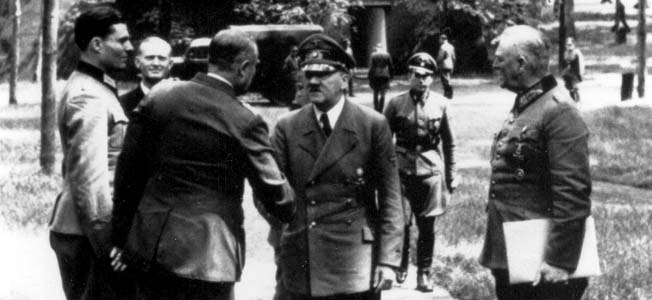
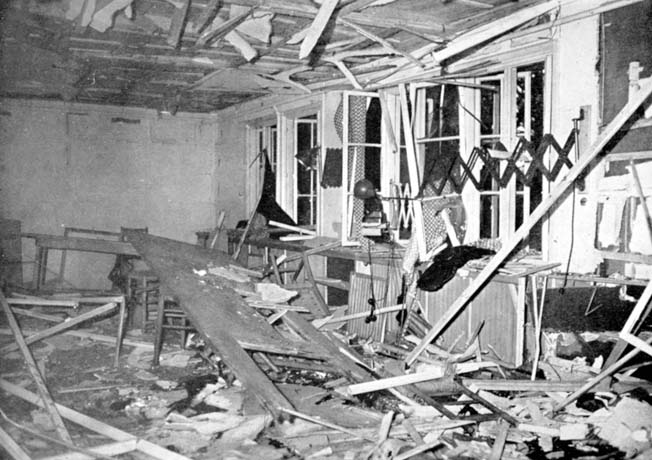
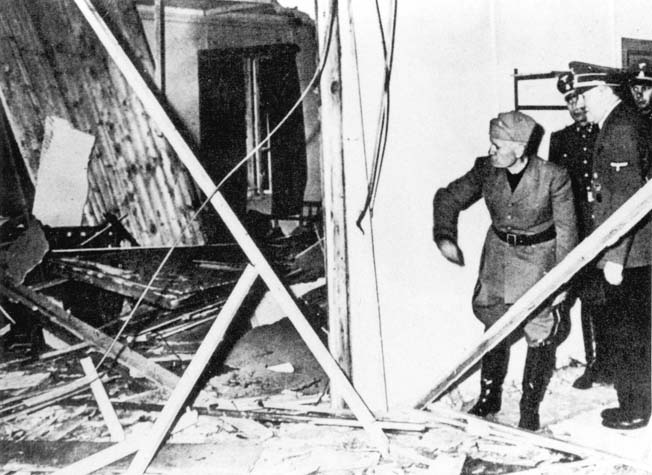
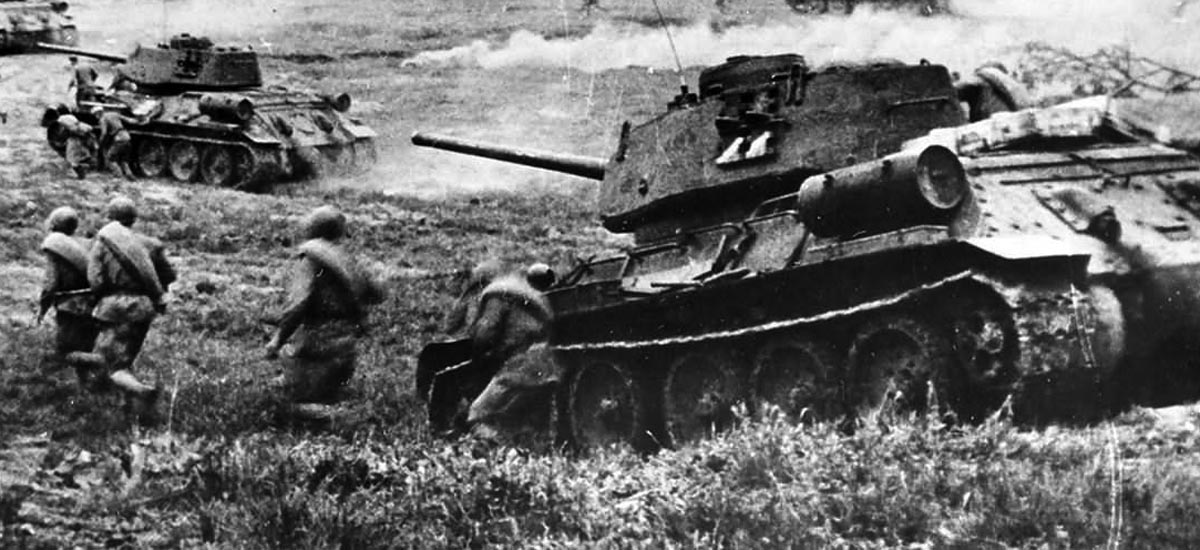
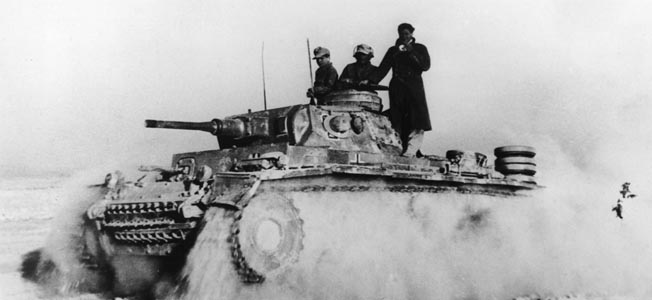
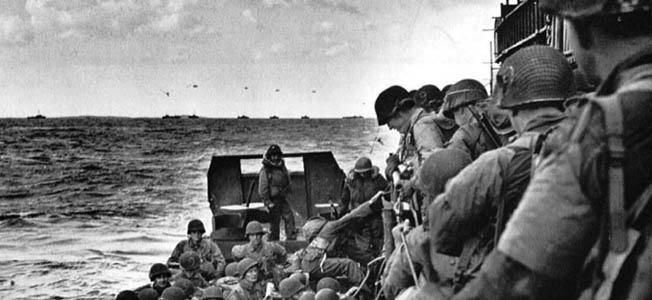
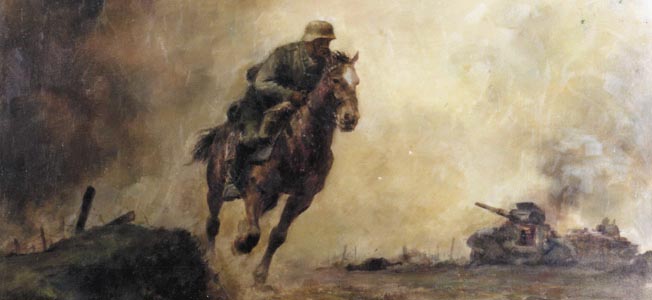
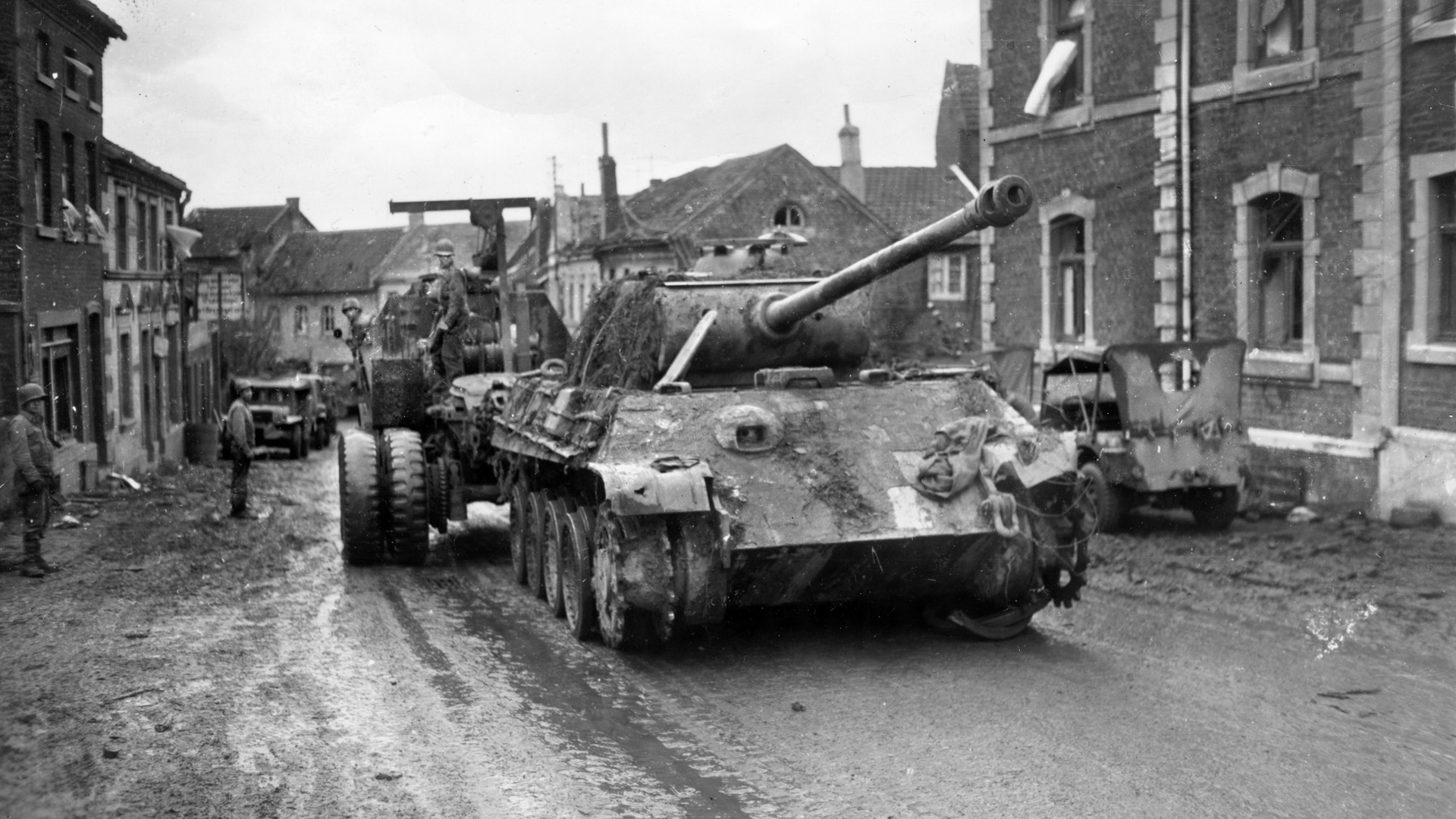
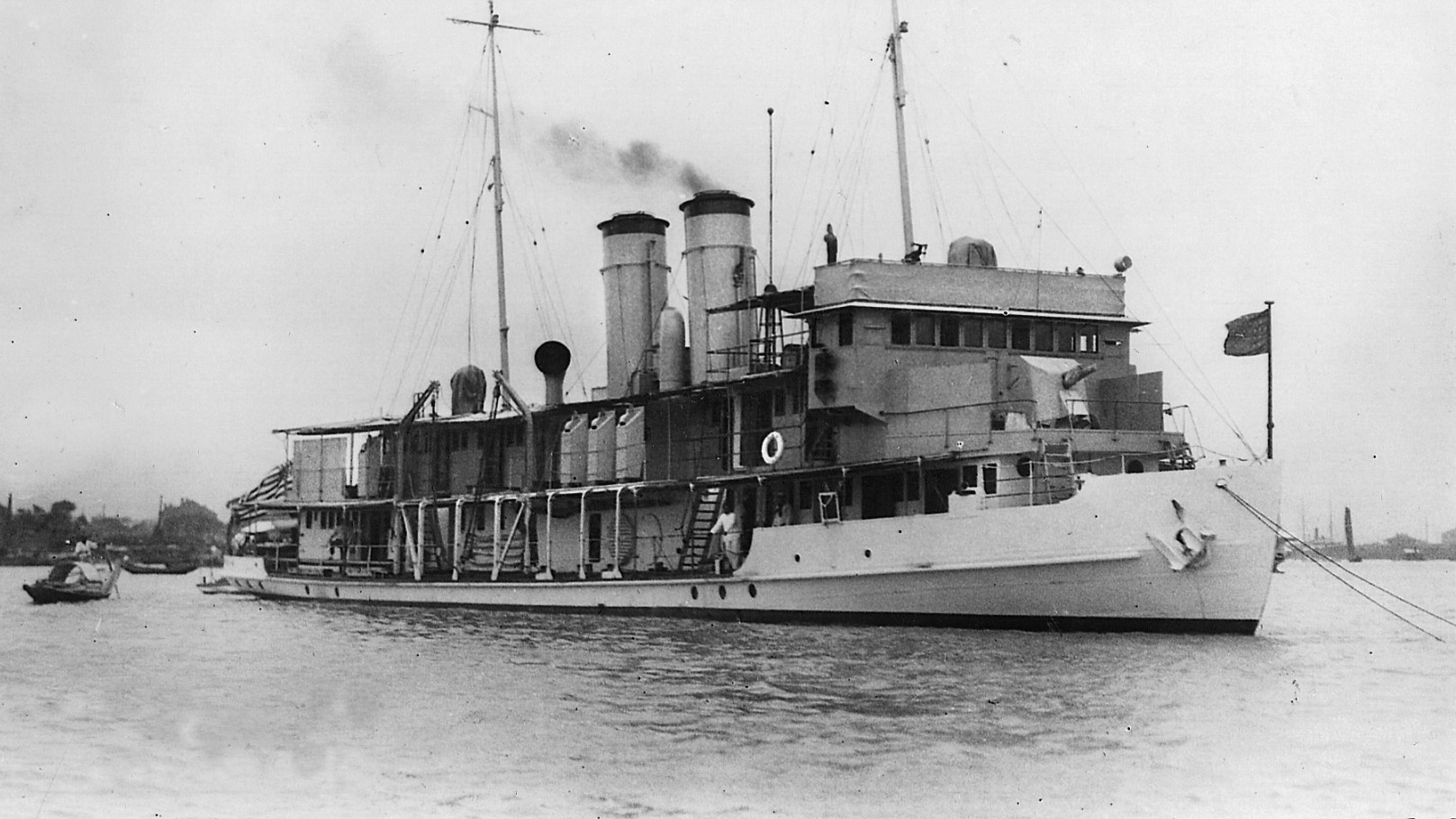
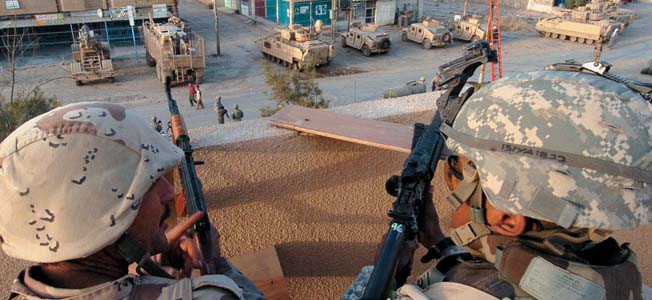
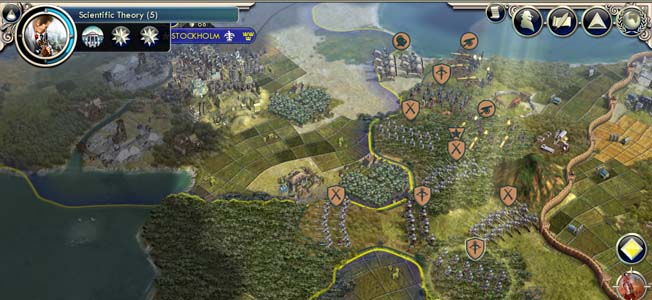
Join The Conversation
Comments
View All Comments